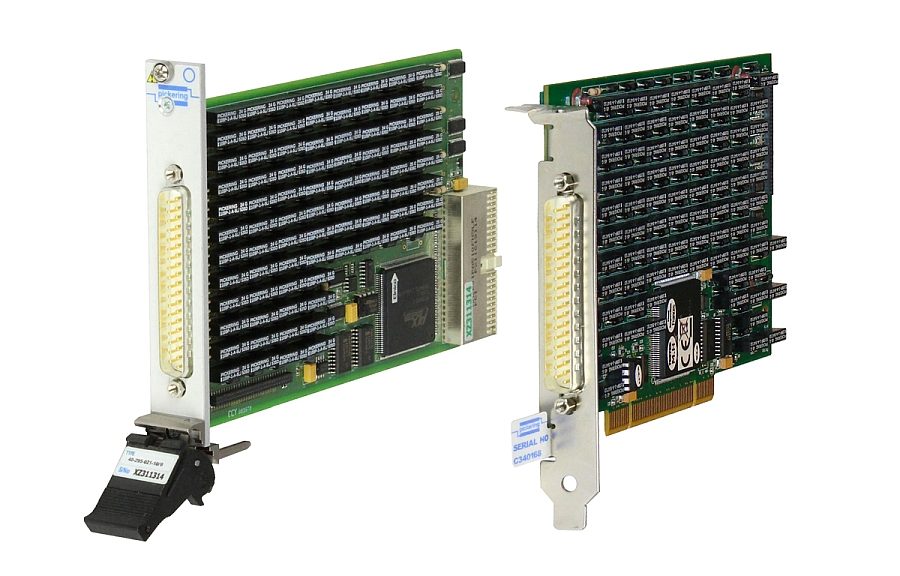- Pickering Interfaces, a provider of modular solutions for signal switching and simulation, announces two new families (40-298 and 50-298) of programmable resistance modules in PXI and PCI formats for applications requiring high levels of density and accuracy.
Pickering Interfaces’ 40-298 series (PXI format) and 50-298 series (PCI format) boards are available in more than fifty standard configurations, depending on the number of resistance channels and their range of resistances and resolutions. They are intended for a variety of applications and to be integrated with various functional test systems.
These two ranges of programmable resistor cards are equipped with Pickering Reed relays which, according to their manufacturer, have resistance adjustment times up to 10 times faster than other precision resistor modules based on electromechanical relays (EMR).
The new modules target all applications requiring the simulation of sensors or other resistive components. The channels can be set to short or open to simulate a wiring or sensor fault. Both module families can accommodate up to 18 channels in a single slot. Their resistance range is from 2MΩ to 22MΩ with a resolution of 0.125MΩ and an accuracy of ± 0.2% ± resolution.
Software control is simplified by the use of resistance value calls. The card operates on the principle of setting the channel value closest to the one requested and thus defines this value. The user can query the map to find the actual resistance setting used. An optional cable, connecting to a digital multimeter, simplifies the verification of the card calibration.
The 40-298 (PXI) and 50-298 (PCI) modules are compatible with a wide range of chassis, such as those in PXI, PXIe Hybrid and USB/LXI formats offered by Pickering Interfaces.






